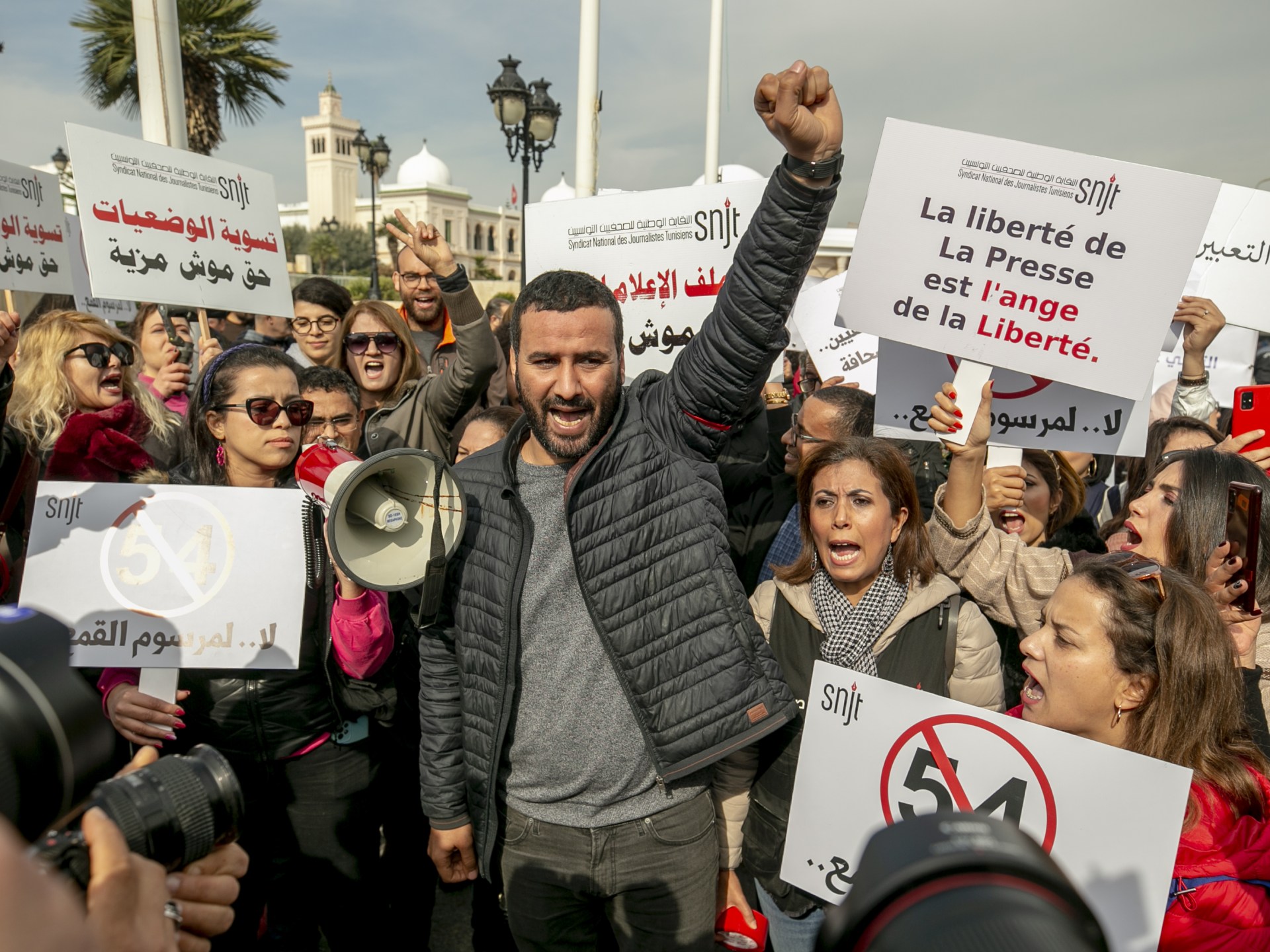Today, Thursday, Tunisian journalists organized a protest stand in front of the government headquarters in the capital, to demand an end to the attacks on them.
At a time when the wave of arrests of political figures continued, Washington renewed its condemnation of this campaign and its support for human rights and freedom of expression.
Journalists - who wore a red armband during what they called "Journalism Day of Anger" - demanded the abolition of Decree 54 issued by the President of the Republic, and saw it as a suppression of freedom of expression and a danger to journalistic work in general.
The journalists called on the Presidency of the Government to activate the joint agreement regulating the journalistic profession, to publish it in the Official Gazette, and to find an "immediate solution to the confiscated media institutions whose workers suffer from a miserable professional situation," according to a number of participants.
Representatives of civil society organizations and activists from the "Tunisian League for the Defense of Human Rights" participated in this demonstration at the invitation of the Tunisian Journalists Syndicate.
The head of the Tunisian Journalists Syndicate, Mehdi Jelassi, said, "The authorities want to bring the private and government media to their knees, and the arrest of the director of 'Mosaique FM' is nothing but an attempt to intimidate journalists," as he put it.
Al-Jelassi explained that the repressive policy "will not affect the determination of journalists to defend their freedom."
wave of arrests
Since last Saturday, 10 people have been arrested, including Noureddine Boutar, director of the popular radio station "Mosaique FM" in Tunisia.
Buttar's lawyers said that during his interrogation by the investigating judge, he was asked questions about the radio's editorial line and the criteria for selecting analysts.
In a continuation of the wave of arrests, lawyer Samir Dilo confirmed - to Al Jazeera - the arrest of Fawzi Kammoun, the former director of the office of the head of the Ennahda Movement, Rashid Ghannouchi.
He indicated that he is being interrogated at the headquarters of one of the specialized security teams in Tunis.
While Tunisian President Kais Saied said that these arrests were related to charges of conspiracy against state security, the National Salvation Front - the most important bloc of opposition parties in Tunisia - saw in the move a clear trend towards tyranny, and called on the political forces to unite.
Tunisian Foreign Minister Nabil Ammar said that the arrests are not political, but rather related to Tunisian national security.
For its part, the Tunisian General Labor Union expressed its rejection of the recent arrests in the country, considering them random and unrelated to accountability, and called for mobilization in defense of freedoms.
American condemnation
In international reactions, US State Department spokesman Ned Price said that his country is concerned about reports of the arrest of political figures, businessmen and journalists in Tunisia.
Price made it clear that the United States respects the aspirations of the Tunisian people for an independent and transparent judicial system capable of providing freedoms for all.
He revealed that the US administration had contacts with the Tunisian government at all levels, in support of human rights and freedom of expression.
Last Sunday, the Ennahda movement condemned the series of random raids and arrests of political opponents of the Qais Saied regime, saying that this "reflects the authority's confusion and its unbridled desire to liquidate all opponents, including politicians, human rights activists, trade unionists, intellectuals, media professionals, bloggers, and businessmen."
And she considered that "Saeed has replaced the judiciary and issued rulings outside the framework of the law, which reminds of the methods of fascist regimes to intimidate people by targeting and abusing opponents."

